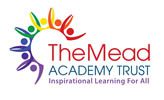Underpinning Principles: An inspirational curriculum
The National Curriculum merely suggests that children should be introduced to the best that has been thought and said. A powerful curriculum goes further, engaging the child in the pursuit of wisdom, truth, beauty and eloquence.
An Inspirational Curriculum within our Trust is characterised by:
Breadth and Depth
Teachers and leaders recognise that every school must offer a broad and balanced curriculum which promotes the spiritual, moral, cultural, mental and physical development of pupils and of society, and prepares pupils for the opportunities, responsibilities and experiences of later life. The National Curriculum provides an outline of core knowledge that is used to develop into inspiring and motivating sequences of learning. Teachers and leaders plan carefully to consider the intent, the implementation and impact of all sequences of learning.
Inspiration and Motivation
Teachers plan carefully to ignite children’s interest through moments of inspiration and provocation. This may include the use of a text, a trip, a visitor or a ‘super starter’ to a learning sequence. Teachers aim to draw on children’s interests and fascinations wherever possible. Teachers make refined decisions about what is fundamental to grasp of the subject they are teaching and plan sequences of learning to address these key concepts, typical misconceptions, and the most compelling routes/sequences to enable mastery.
Expert Leadership
Subject leaders oversee both planning and teaching and are an effective resource for improving teaching. Leaders advocate, understand and measure the impact of their actions on developing subject expertise, the quality of teaching in their subject, and children’s enjoyment, progress and outcomes in their subject. Some learning sequences are planned and undertaken by subject specialists to further improve teaching and help reduce teacher workload. Subject specialists support the development of high quality specialist planning scaffolds that can be used by all teachers as building blocks for planning units of learning, to support subject knowledge and reduce teacher workload.
Highest Standards in All Subjects
Producing learning of quality doesn’t just happen. It has to be planned for in a progressive way with the essential skills unpicked, a common language for learning modelled, and metacognition developed. Teachers’ understanding of a subject and how children learn that subject is crucial. Professional growth for all staff supports the development of high levels of subject knowledge across the curriculum. Subject experts use their specialist knowledge to support the development of the curriculum across the Trust and to support individual colleagues as necessary.
Meaningful Contexts and Connections
Teachers understand that children learn best when they are able to make connections between experiences and when learning contexts are authentic and meaningful for them. Teachers craft a deliberate and considered learning journey by creatively linking curriculum areas through a range of themes, questions, experiences and activities. Wherever possible learning is linked to real life situations. Children understand why they are learning specific skills and are motivated to find answers to authentic puzzles, dilemmas, issues and quandaries through a process of creative thinking and enquiry.
Preparing for Now and for The Future
The curriculum is held under constant review. Teachers and leaders understand that “Most of what our students need to know hasn’t been discovered or invented yet. Learning how to learn used to be an optional extra in education; today, it’s a survival skill.” (Wiliam, 2015). Teachers strive to equip children with the skills and attributes that will enable them to meet and face future challenge so that they are willing to embrace change, relish the unusual and be thirsty for new experiences.
Digital Technology
Technology has a clear pedagogical purpose and is used responsibly across the curriculum to improve teaching and learning, be creative and to challenge themselves. Teachers keep up to date with new innovative technology and are clear about what will be used, what training will be required, how it will be embedded and how the impact will be monitored.
Life Experience and Personal Development
The Trust’s values based curriculum is designed to promote personal and character development as well as academic excellence. Teaching and learning supports children to become global citizens through developing positive attitudes and behaviours characterised by high self-esteem, independence, self-confidence, responsibility, resilience and collaboration. Teachers are committed to providing stimulating, irresistible and enriching learning experiences for all children that support them to participate in literature, drama, music, arts, crafts and other cultural events. Learning is enriched by a wide range of educational experiences, including trips, visits and visitors, to engage, cultivate and extend the children’s learning and social capital.
An Enrichment Cycle
School across the Trust plan a four year rolling programme of enrichment covering key areas of learning including arts, health and fitness, citizenship and STEM. Teachers provide a broad range of unique activities, linked to the enrichment theme, culminating in a community festival for all members of the wider school communities. Leaders of the Community Festival aim to support development of global understanding and personal and social aspects of learning.
Community Engagement
Teachers and leaders recognise the value of a curriculum that is outward-facing, responsive, participative and collaborative and are committed to using the community as a both a source of information and expertise as well as a rich resource for investigation and exploration.
